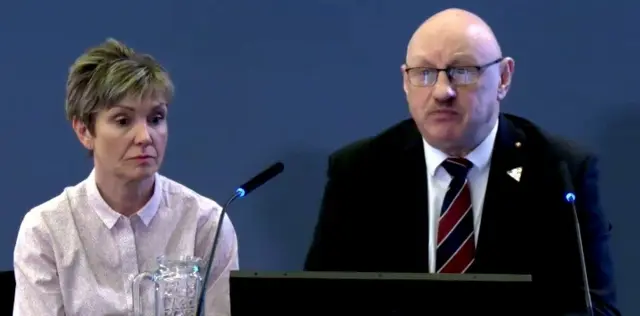More people with injuriespublished at 13:28 GMT 18 February
Mr Scott says he came across a police land rover and officers tending to an injured person on a door.
He says he helped try to put the door into the back of the land rover but that it wouldn't fit.
"I really can't remember what happened then, I think we jettisoned the door and put the person into the back of the land rover."
